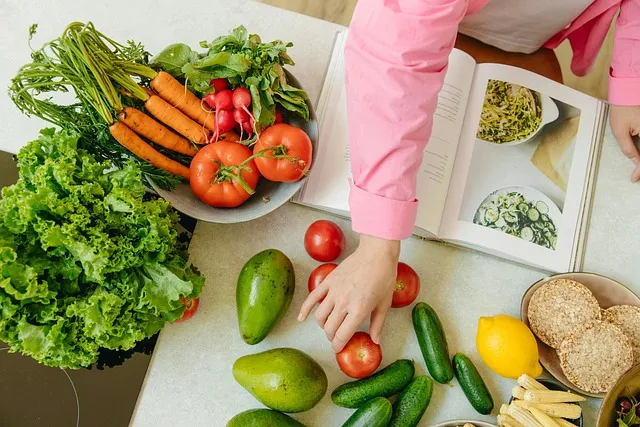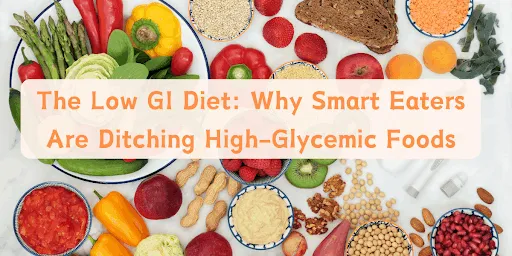Ever feel like your chest is on fire after a simple meal? Millions of Americans struggle with acidity and heartburn every day, turning a comforting dinner into a painful regret. It's frustrating, especially when you’re not even sure what's triggering it. Here's the truth: what you eat matters.
Your food choices directly affect your digestive health. Some meals calm your gut; others stir up discomfort. The goal of this blog is to guide you, step-by-step, through foods for acidity, heartburn-friendly foods, and what to eat for acid reflux.
What Causes Acidity And Heartburn?
Acidity and heartburn are symptoms of acid reflux, a condition where stomach acid flows back into the esophagus. This backflow happens when the lower esophageal sphincter (LES) relaxes abnormally or weakens. That burning sensation behind the chest? It’s the stomach acid irritating the esophageal lining.
Several triggers worsen this:
-
Overeating large meals
-
Lying down right after eating
-
Excessive intake of caffeine or alcohol
-
Spicy, fried, or fatty food
-
Smoking
-
Chronic stress
In the U.S., around 30% of the population reports symptoms of GERD (gastroesophageal reflux disease), a severe form of acid reflux. If you feel symptoms more than twice a week, it's time to act.
Best Foods For Acidity & Heartburn Relief
Changing your diet is the first step to controlling heartburn. Below are the best foods to reduce acidity and soothe your gut. These are what nutritionists and doctors recommend in any acid reflux diet plan.
1. Non-Citrus Fruits
Fruits can be your best friends—or your worst enemies—when it comes to acidity. Citrus fruits are a no-go. But non-citrus fruits are excellent choices.
Why they work
Non-citrus fruits like bananas, melons, pears, and apples are naturally alkaline. They help neutralize acid in the stomach. Bananas contain pectin, which helps food move smoothly through your digestive tract. Melons are 90% water, making them hydrating and gentle on the stomach.
Tips to try:
-
Start your day with a sliced banana
-
Snack on watermelon cubes in the afternoon
-
Add sliced pears to your oatmeal or salad
Avoid: Citrus fruits like oranges, limes, lemons, and grapefruits—they can weaken your LES and make things worse.
2. Vegetables
Vegetables are hands down the most effective foods for acidity. Almost all vegetables (except a few like onions and tomatoes) are low in acid and packed with nutrients.
Why they help
They're high in fiber and low in fat and sugar. This combination reduces pressure on your stomach and supports better digestion.
Best options:
-
Leafy greens like spinach and kale
-
Zucchini (gentle and easy on the stomach)
-
Celery (high water content, soothing)
-
Carrots (light, easy to digest)
-
Cucumber (cooling, reduces acid effect)
Steaming or lightly sautéing your veggies helps preserve their nutrients without adding acid.
Quick tip: Avoid cruciferous vegetables like cauliflower or broccoli if they cause bloating. Everyone’s system is different.
3. Whole Grains
Fiber is the unsung hero in the acid reflux world. Whole grains are rich in fiber and absorb stomach acid like a sponge.
Top picks:
-
Brown rice
-
Oatmeal
-
Whole wheat bread
-
Quinoa
-
Barley
Oatmeal, especially, is a staple breakfast for anyone managing acid reflux. It's filling, gentle, and absorbs excess acid.
How to eat: Pair your oatmeal with banana slices or almond milk for a heartburn-friendly breakfast. Avoid butter or full-fat milk, which can trigger symptoms.
4. Low-Fat Dairy Or Plant-Based Alternatives
Dairy can either soothe or inflame, depending on the type. High-fat dairy? Not helpful. But low-fat or plant-based versions can cool things down.
Choose wisely:
-
Skim milk
-
Low-fat yogurt
-
Almond milk
-
Oat milk
-
Coconut milk
Yogurt has probiotics that help balance gut bacteria and improve digestion. Just be sure it’s low in fat and free from added sugars.
Avoid: Full-fat dairy, cheese, and cream—they increase acid production and slow down digestion.
5. Lean Proteins
Lean proteins are easy to digest and help repair the gut lining.
Good choices:
-
Skinless chicken
-
Turkey
-
White fish
-
Egg whites
Avoid frying. Bake, grill, or steam instead. Eggs are okay, but skip the yolk if it bothers your stomach.
Egg whites are a protein powerhouse with almost no fat, making them heartburn-friendly foods.
Tip: Add protein to your lunch with grilled chicken or baked salmon and pair it with brown rice or veggies.
6. Healthy Fats
You need fats, but the right kind. Healthy fats protect your heart and soothe your stomach lining.
|
Healthy Fats |
Why It Works |
|
Avocado |
Rich in fiber and anti-inflammatory fats |
|
Almonds (unsalted) |
Loaded with magnesium and fiber |
|
Flaxseeds |
High in omega-3s; improve gut health |
|
Olive oil (in moderation) |
Easier on digestion compared to butter |
Stay away from butter, lard, and creamy dressings. They slow digestion and increase acidity.
7. Herbal Teas
Hot drinks can go two ways. Black tea and coffee? Bad idea. Herbal teas? A great calming alternative.
Best teas:
-
Chamomile: Reduces stress and soothes your stomach
-
Ginger tea: Anti-inflammatory and relieves nausea
-
Fennel tea: Reduces bloating and reflux symptoms
-
Licorice root tea: Forms a protective layer in the stomach
Avoid peppermint tea, it relaxes your LES and worsens heartburn.
Foods And Drinks To Avoid
What to avoid during heartburn? This list will save you from a burning chest.
1. Citrus Fruits & Juices
Citrus fruits weaken your LES and spike stomach acid. Even a small glass of orange juice can be a trigger.
2. Spicy Foods
Spices like chili powder, black pepper, and hot sauces are top offenders. They inflame the stomach lining and make acid reflux worse.
3. Fatty Or Fried Foods
They’re heavy, slow to digest, and sit in your stomach like a rock. French fries, burgers, and cheesy pizza? All risky. They delay gastric emptying and make reflux more likely.
4. Caffeinated Drinks
Coffee, black tea, and energy drinks are common triggers. They stimulate acid production and relax the LES.
5. Chocolate
Chocolate contains caffeine and theobromine. Both loosen the LES and trigger reflux. It's tempting, but risky.
6. Carbonated Beverages
Bubbles in sodas expand in the stomach and push acid upward. Cola, sparkling water, and energy drinks aren’t safe choices.
7. Alcohol
Alcohol relaxes the LES and irritates the stomach lining. Red wine and beer are common triggers. If you must drink, choose one small glass with food, never on an empty stomach.
Eating Habits That Help Prevent Acidity
You can eat all the right foods and still suffer if your habits are off.
-
Eat small meals: Four to six smaller meals are better than three big ones.
-
Chew well: Digestion starts in the mouth. Don’t rush.
-
Don’t lie down right after eating: Wait at least 2–3 hours.
-
Wear loose clothing: Tight waistbands press on the stomach.
-
Quit smoking: It weakens your LES and aggravates symptoms.
-
Hydrate properly: Drink water, especially alkaline water, to reduce acidity.
Sample Acid-Reflux-Friendly Meal Plan
|
Time |
Meal |
|
8:00 AM |
Oatmeal with banana slices + almond milk |
|
10:30 AM |
Apple slices with almond butter |
|
1:00 PM |
Grilled chicken + brown rice + steamed zucchini |
|
4:00 PM |
Coconut water + a handful of unsalted almonds |
|
6:30 PM |
Baked salmon + boiled sweet potatoes + carrots |
|
9:00 PM |
Chamomile tea + 1 tsp honey |
When To See A Doctor
If symptoms occur more than twice a week and don’t improve with diet, it’s time to talk to a doctor. Constant acid can damage your esophagus, leading to complications like ulcers or Barrett’s esophagus.
Watch for:
-
Frequent nausea
-
Difficulty swallowing
-
Unexplained weight loss
-
Vomiting blood
-
Severe chest pain
Don’t wait for it to get worse. Long-term acid reflux is more than discomfort; it’s a risk to your health.
Conclusion
You can’t always stop heartburn, but you can control it. The right foods for acidity and heartburn relief can make a big difference. What you eat and how you eat both matter.
Try to eat smaller meals, avoid the usual triggers, and make food choices that keep your stomach calm. Remember: acidic foods don’t break down fast. They create a cycle of pain that feeds itself. Choose balance. Choose comfort.
Frequently Asked Questions
Can I drink milk during a heartburn episode?
Low-fat or skim milk may give temporary relief. But whole milk may worsen symptoms due to its fat content.
Are eggs safe to eat with acidity?
Egg whites are good. They’re low in fat and acid. Avoid the yolks if they tend to trigger your symptoms.
Can probiotics help with acid reflux?
Yes. Probiotics in yogurt and fermented foods can improve gut health and reduce reflux symptoms over time.
Should I avoid eating at night to prevent acidity?
Definitely. Eating late at night increases the chance of heartburn. Try to eat dinner at least 3 hours before bedtime.
-User-1754380331.png)
Reviewed by







